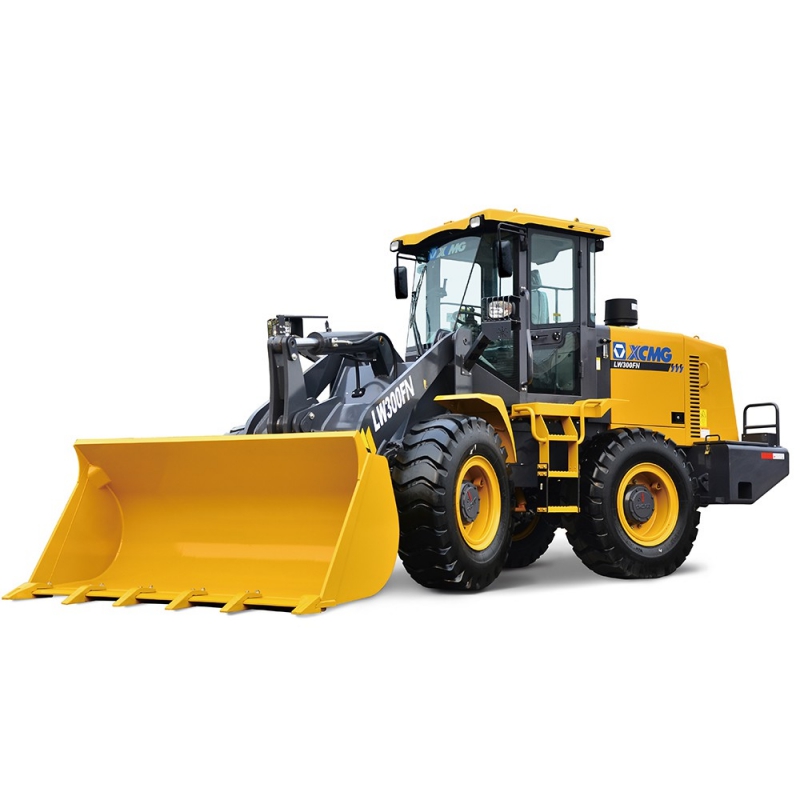Let’s be real—buying used heavy machinery isn’t like picking up a used lawnmower at a garage sale. There are big risks, big money, and even bigger headaches if you miss something important. If you’re not careful, you could end up with a machine that’s more trouble than it’s worth. Here’s what you need to watch out for—and how to keep your investment safe.
- Skipping the Equipment’s Maintenance History
Ever bought a car without checking its service records? Same deal here, but with even higher stakes. If you don’t know how well a machine was maintained, you’re flying blind. If you’re looking for machines like the XCMG, these checks become essential.
What you should do:
– Ask for all service records: Look for oil changes, filter swaps, hydraulic checks, and other regular tasks.
– Check for gaps: Inconsistent or missing records = red flag.
– Confirm manufacturer-recommended maintenance: If the machine skipped scheduled care, it might be hiding serious problems.
Why it matters:
A well-documented maintenance history means fewer surprises and a better idea of what repairs might be coming up.

- Ignoring Visible Wear and Tear
Don’t just kick the tires and call it a day. Small cracks, rusty spots, or dents can turn into big issues.
Inspection tips:
– Bring a flashlight and magnifier: Get in close, especially on weld seams and hydraulic cylinders.
– Check for:
– Cracks
– Dents
– Rust/corrosion
– Misaligned parts
Pro tip:
If you see something that doesn’t look right, ask questions or get a second opinion. Don’t brush it off.
- Skipping Operational Checks
You wouldn’t buy a used car without a test drive, right? Same goes here. Make sure the machine actually works.
During the test:
– Test all controls, hydraulics, and safety features.
– Listen for weird noises or vibrations.
– Try all functions—raise, lower, rotate, steer, etc.
– Watch for warning lights or error codes.
Red flags:
Strange sounds, sluggish response, or anything that feels “off” can indicate bigger issues.
- Not Verifying Usage Hours
Some sellers might fudge the numbers. High hours can mean extra wear, but low hours with lots of repairs? That’s suspicious too.
How to check:
– Compare hour meter readings with maintenance logs.
– Look for tampering or inconsistencies.
– Ask about the type of work the machine did—light duty or heavy abuse?
Bottom line:
More hours usually mean more wear, but documentation tells the real story.
- Forgetting to Research the Seller
A good deal from a shady seller is never a good deal. Take a minute to check them out.
Quick seller background check:
– Search for online reviews or complaints.
– Ask for references.
– Make sure they’re licensed and legit.
Why bother?
A trustworthy seller means less chance of scams, hidden damage, or legal headaches later.
- Not Getting a Pro Inspection
Even if you’re a machinery whiz, it pays to have a pro look things over.
A professional inspector will:
– Spot hidden wear or damage you might miss.
– Check major systems (engine, hydraulics, electrics).
– Give you an unbiased report so you can negotiate price—or walk away.
Think of it as:
Inexpensive insurance for your investment.
- Overlooking Past Accidents or Repairs
Just because a machine looks fine now doesn’t mean it wasn’t wrecked before.
What to do:
– Ask for accident and repair history.
– Check maintenance records for major repairs.
– Cross-check records with your own inspection.
Why it matters:
Undisclosed damage can lead to expensive breakdowns or safety issues.
- Not Checking Documentation and Titles
Paperwork might seem boring, but it’s super important. You do not want to buy a machine with a shady title or outstanding debt.
Checklist:
– Verify the title matches the machine’s serial number.
– Make sure there are no liens or loans attached.
– Get all original documents and registration papers.
If something doesn’t add up:
Walk away—fast.
- Ignoring Total Ownership Costs
The price tag isn’t the whole story. Maintenance, repairs, insurance, and fuel all add up.
Before you buy, factor in:
– Maintenance and repair history
– Expected downtime
– Parts availability and costs
– Depreciation and resale value
– Compliance with future regulations
Smart move:
Make a list of all future costs so you’re not caught off guard.
- No Return or Warranty Policy
Stuff happens. If your “new-to-you” machine breaks down right away, you’ll want some protection.
Ask your seller:
– What’s the return policy? (If any)
– Is there a warranty? What does it cover?
– How long does it last?
Pro tip:
Get all policies in writing before you pay a cent.
Wrapping Up: Don’t Get Burned
Buying used heavy machinery is a big deal, and little mistakes can cost you a fortune. Keep these tips handy:
– Double-check records and paperwork.
– Inspect everything—twice.
– Never skip the test run.
– Trust your gut—and a good mechanic.
Take your time, ask questions, and don’t be afraid to walk away if something feels off. Your future self (and your wallet) will thank you!
